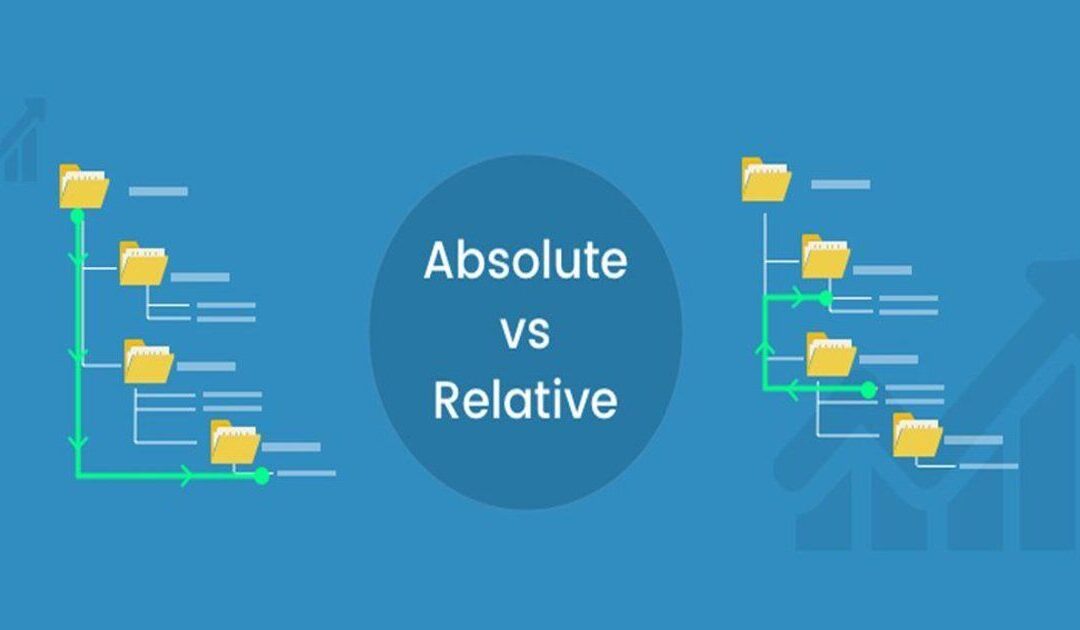Managing the multiple facets of a website is not a cake walk. Every miniature move could have a voluminous impact on your SERP Ranking. One such dominant aspect of a webpage is handling web links. Web page strategists have always had this lingering doubt about the right option between relative and absolute URLs to link web pages.
Let us check out each of these!
About a URL:
A URL is typically used to refer a webpage on the address bar. Consider the URL https://www.mywebpage.com/resource. Let us understand the protocol in this URL.
- The way of handling the file is HTTP.
- www.mywebpage.com is the host name
- File name intended to be visited is “resource”.
Going deeper into web links:
- https://www.mywebpage.com
- https://www.mywebpage.com
- https://mywebpage.com
- https://mywebpage.com
Do not be taken aback as every web link ideally has four different URL addresses. The https://www.mywebpage.com is the best and the most secure protocol over the other options and hence this is the preferred URL to your webpage. What you will need to do is resolve the other web addresses to this URL. Else, the SEO benefits you gain through customers visiting your website will be split into four thereby dipping your SEO efforts.
Read More: Is URL Masking the Best way to Deal with Redirects?
Absolute and Relative URLs:
An absolute URL is as the name refers a complete address of the destination proposed to reach. For example the URL https://www.mywebpage/resources/xyz-content is the absolute URL pointing to www.mywebpage.com and leads to the” xyz-content” which is a part of ”resources”.
Coming to relative URL of the same which will be: /xyz-content. This relative URL is structured with the assumption that you are already in the “resources” of www.mywebpage.com and will lead to xyz-content.
Why Should you use Relative URLs?
-
They are pretty faster:
If you were a web developer building loads of web pages, you will see this happen. You will realize that relative URLs are efficient than absolute URLs.
-
Staging domains:
This happens in a typical content management system like SharePoint wherein a complete domain is replicated. The website will be simply www.mywebpagenew.com instead of www.mywebpage.com. In such cases using relative URLs decreases the necessity to recode the entire website links on the staging domain again.
Why would you prefer Absolute URLs?
-
Scraper risk:
Yes. Using relative URLs could be a big advantage for scrapers as they could simply use all your website links on another domain. This would mean all your development efforts going into the drain. This should probably be one significant aspect for you being inclined to absolute URLs.
-
Eliminating duplication:
It confuses Google. Yes, Google doesn’t know which of the several identical links is for indexing and ends up crawling the whole lot. If you have different directories then the situation becomes worse. The search engine will end up analyzing all the relative links actually directing to a single web page.
-
Crawl budget:
Google has a definite time limit to spend on your website. This is based on few aspects of site authority, the page rank and the complexity of your website. Due to this cost implication Google will crawl a finite number of URLs and finish off. So with all these relative links around your website, you will be misleading search engines, in turn impacting your website optimization efforts.
Read also: 301 Redirects Can Prevent your Pages from Passing Topical Relevance
The Way Out:
-
The server side:
On the server side, ensure that all your web links point to a single destination. Prefer the: https// as it is the most secure protocol of the four options available.
-
Internal links:
Spend some time in recoding all your internal links if they are relative. Absolute links are the only option to eliminate possibilities of missing on internal link juice and duplication issues.
-
Canonical tags:
A search engine crawler could reach a website www.mywebpage.com through
- https://www.mywebpage.com
- https://www.mywebpage.com
- https://mywebpage.com
- https://mywebpage.com/index.php
There could be many more links if it were a bigger CMS. Canonical tags actually show the search engine which link to crawl by defining it using:
Read More: Importance Of Canonical Element In SEO | SEO Canonicalization
Login to Check your Canonical Mismatch: SEO Audit Tool
To conclude:
To decide the best option between relative and absolute URLs solely depends on the individual scenario. However, considering potential implications of relative URLs on SEO efforts and SERP ranking, absolute URLs should be indeed the apt choice to be zeroed down.






